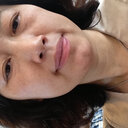Assessment of the clinical effect of Chinese medicine therapy combined with psychological intervention for treatment of patients of peri-menopausal syndrome complicated with hyperlipidemia.
Mots clés
Abstrait
OBJECTIVE
To observe the effect of Chinese medicine therapy combined with psychological intervention (combined therapy) on the clinical symptoms and levels of blood lipids and sex hormones of patients of peri-menopausal syndrome complicated with hyperlipidemia.
METHODS
With the use of a randomizing digital table method, 185 patients that fit the registration standard were randomly assigned to three groups. The 59 cases in Group A were treated with two Chinese patents, Kunbao Pill and Modified Xiaoyao Pill; the 63 in Group B received psychological intervention alone; and the 63 in Group C were treated with both (the combined therapy), with the treatment course for all six months. The items of observation included: (1) scoring by SCL-90 on eight factors and seven symptoms; (2) scoring on Chinese medicine symptoms by Kupermann scale, including anxiety and bad temper, scorching sense action with sweating, dizziness, tinnitus, soreness and weakness of the loin and knees, palpitation, insomnia, lassitude, weakness, and hyposexuality; (3) blood contents of total cholesterol (TC), triglyceride (TG), high-density lipoprotein cholesterol (HDL-C), low-density lipoprotein cholesterol (LDL-C), apoprotein AI (ApoAI) and B (ApoB); (4) levels of sex hormones, including estradiol (E(2)), progesterone (P), pituitary prolactin (PRL), follicular stimulating hormone (FSH), and), luteinzing hormone (LH) in some randomly selected patients; (5) adverse reaction; and (6) one-year follow-up study on long-term effect.
RESULTS
A total of 21 patients (6, 8, and 7 cases in Groups A, B, and C, respectively) dropped out; the drop-out rate was insignificant among groups. (1) The markedly effective rates in Group A, B, and C were 26.42% (14/53), 18.18% (10/55), and 53.57% (30/56), respectively, and the total effective rates in them were 64.15% (34/53), 50.91% (28/55), and 87.50% (49/56), respectively, suggesting the therapeutic efficacy in Group C was significantly better than that in Groups A and B (P<0.01). (2) SCL-90 scoring showed that the total scores decreased significantly after treatment in Group C (P<0.01), but remained unchanged in Groups A and B (P>0.05). (3) Scoring on Chinese medicine symptoms showed the same results as shown by SCL-90 scoring in terms of total scores and individual symptoms, except that menstrual disorder and amenorrhea were unchanged in all three groups (P>0.05). (4) Levels of HDL-C, ApoAI, and E(2) increased and those of TG, TC, LDL-C, ApoB, FSH, and LH decreased after treatment in Group C, reaching near normal levels; similar trends of blood lipids were shown in Group A, but the level of sex hormones was unchanged. In Group B all the above-mentioned indices were unchanged (P>0.05). (5) A one-year follow-up study showed the markedly effective rate and the total effective rate in Group C were higher than those in the other two groups respectively (P<0.01). (6) No adverse reaction was found.
CONCLUSIONS
Chinese medicine therapy combined with psychological intervention could not only improve the nervous symptoms, but also regulate the blood levels of lipids and sex hormones in patients of peri-menopausal syndrome complicated with hyperlipidemia.



